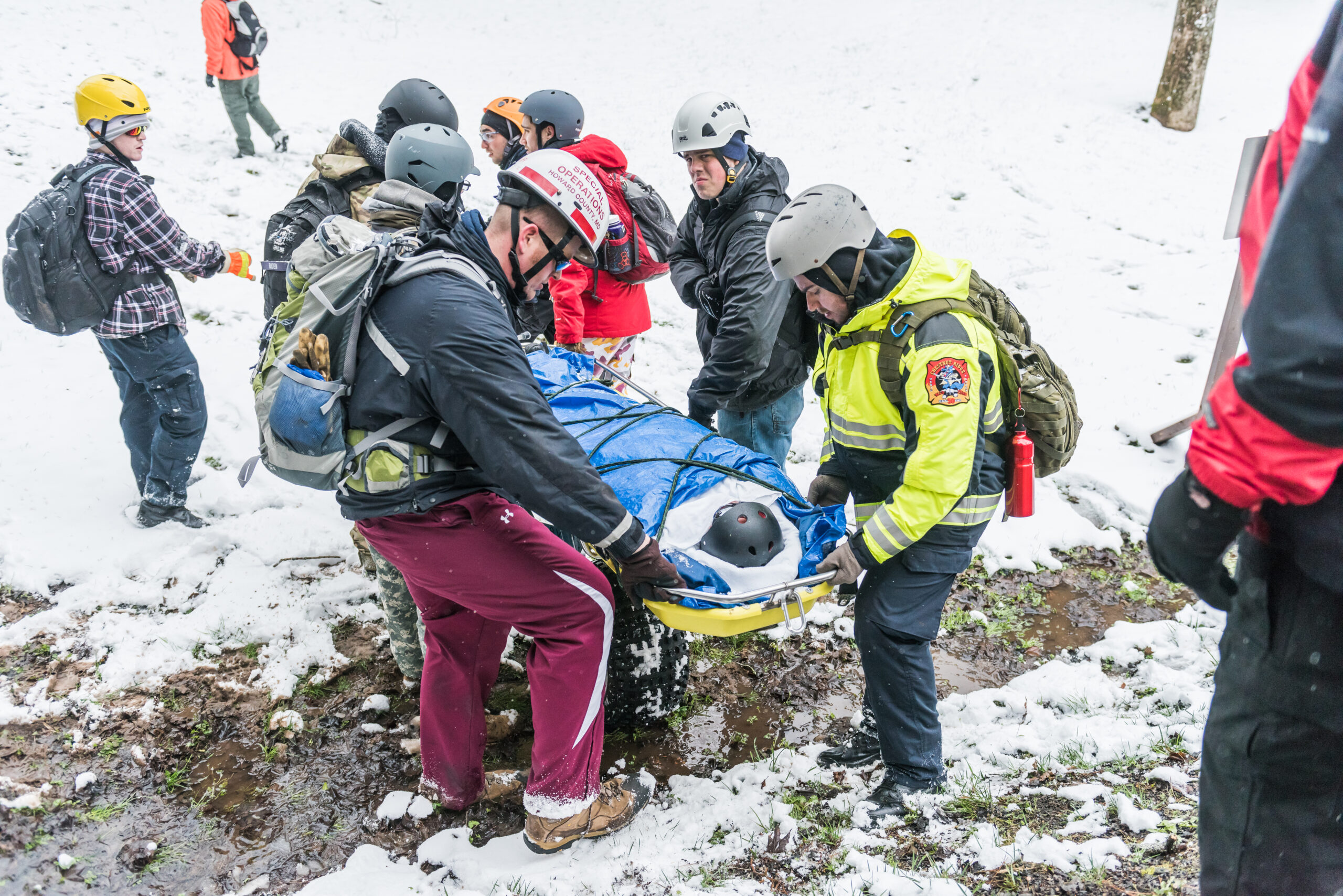The increasing impact of global disasters on health systems has created a growing need for experts to help manage disaster risks and reduce their impact. In keeping with that demand, UMBC’s emergency health services (EHS) department has changed its name to the Department of Emergency and Disaster Health Systems (EDHS) to reflect the scope of research, teaching, and learning of emergency and disaster health systems covered in its programs. The new name also acknowledges the scholarship happening at the graduate level.

“Our new department name signifies our commitment to emergency and disaster health education,” says Lauren Clay, associate professor of emergency and disaster health systems and department chair, who has received several grants from the National Science Foundation in recent years to specifically address the understanding and monitoring of food availability, acceptability, and accessibility during disasters. “We prepare leaders that are ready to tackle the complex and evolving hazards facing communities across the United States and the world,” explains Clay.
UMBC’s EDHS department is rising to the challenge by equipping students with the skills needed to pursue careers as emergency preparedness coordinators, community engagement specialists, emergency communications supervisors, or analysts. Undergraduate students can now enroll in classes that focus on disaster management in healthcare, public health, and emergency management organizations, in addition to emergency health services classes.
UMBC’s EHS department has a long history of preparing students to enter careers where they are ready to respond to local disasters like Ellicott City’s most recent floods and international disasters, like the Philippines’s Typhoon Haiyan. The EHS baccalaureate program began in 1980 with the goal of producing the most comprehensively educated individuals capable of performing tasks within the broad scope of the emergency healthcare field as leaders, managers, and providers.
The graduate program for emergency health services, the first in the nation, began a year later. It remains the largest program of its type available in the United States. Next year, the department is planning to offer several new graduate and undergraduate classes on a range of disaster health systems topics.
“The department has offered emergency health services and disaster management programs for decades. The former name did not fully capture the breadth of those offerings,” explains Clay. “We wanted to make sure that students and our colleagues know about our programs that prepare students to work in various professions addressing emergency and disaster health.”
Learn more about what EDHS has to offer.
Tags: CAHSS, cahssresearch, EDHS, Research

